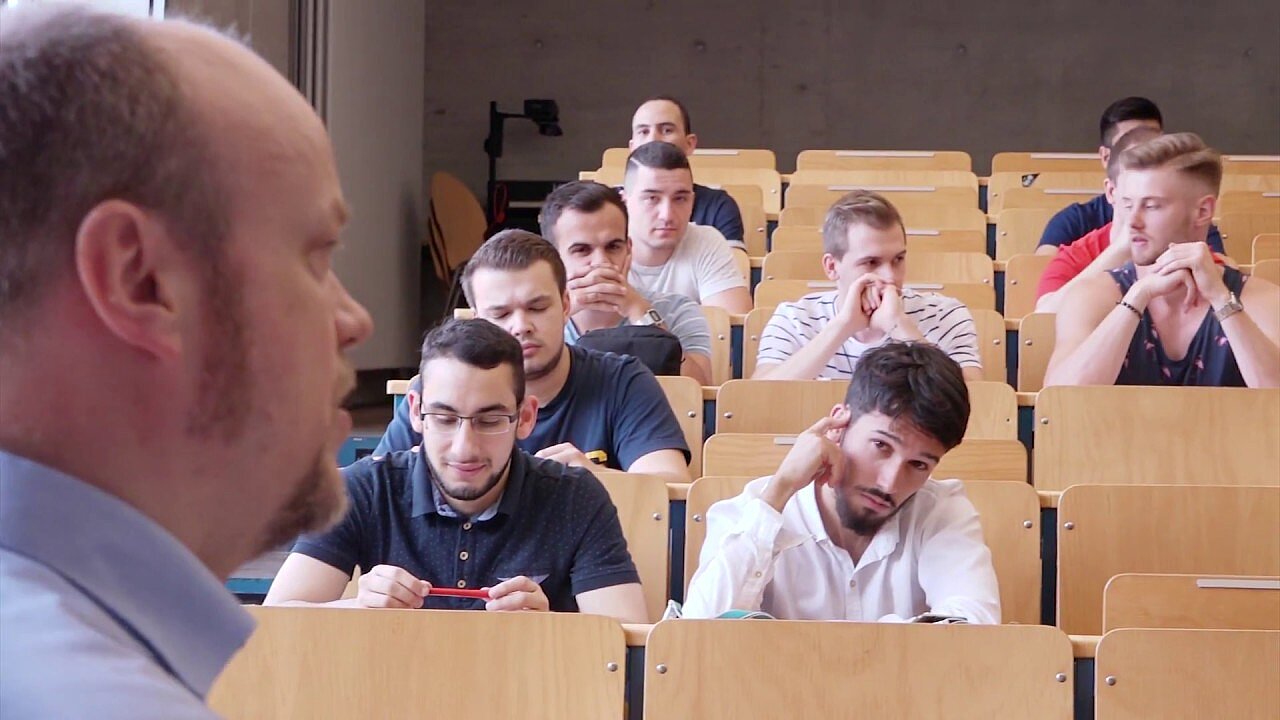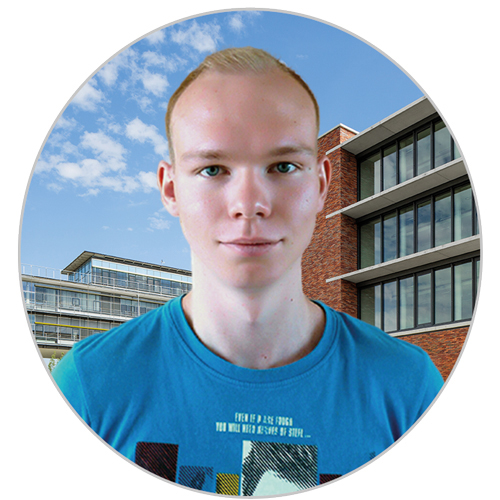Electrical Engineering / Information Technology - Bachelor of Engineering (B.Eng.)
Everydays' applications like the internet, mobile telephones and navigation systems run on high-complex technical systems. We use these systems as a matter of course, but who is behind their advancement or even new invention? One of the most essential areas for these systems is the electrical engineering, and in particular, information technology (IT), which is the cornerstone for modern development.
Develop intelligent machines and systems!
Increase the quality in production!
Study Program Overview
Our study program provides you a hands-on education that includes a deep understanding of technical systems and will best prepare you to start your career as an engineer. You will acquire a solid basic knowledge and specialised knowledge in your field. Our program is tailored to meet the complexity of modern technical systems, for example, our students acquire the relevant multidisciplinary expertise through interdisciplinary projects.
As a graduate of the degree program Electrical Engineering/Information Technology, you have the option of continuing your studies with the consecutive master's courses in Embedded Systems and Mechatronic System Development, or in the master's degree program Information System or by joining the cooperative doctoral research group "Design and Architecture of Embedded Systems", that is offered in cooperation between Pforzheim University and the Eberhard Karls University of Tübingen.
Quick Facts
Admission
Winter semester
Regular study duration
7 semester, inclusive internship and bachelor thesis
Application deadline
15th July
Registration for interview
15th May
Requirements
General high-education entrance qualification or a technical college entrance qualification
Pre-study internship
Not required
Language of instruction
Predominantly German
Tuition fee per semester
80 € Students Union fee
70 € administrative costs
8 € Student Body fee
per semester
Internship
To be completed in the 5th semester. Study abroad programs are available.
Accreditation
ASIIN
Professional Opportunities
The career prospects for graduates of this program are extraordinarily good. The increasing application of electronic systems beyond the electrical and the IT-industry, for example in the automobile industry and the engineering sector, ensures that more jobs are created by manufacturers and suppliers. The opportunities for graduates of this program are not only restricted to the conventional careers like product development, they can also work in manufacturing and quality management, in the technical sale and services such as maintenance or even in project development.
Your profile - Prerequisites
First practical experiences with electronics is of advantage, but not a must. Rather necessary is your interest in the areas of mathematics, computer science, natural science and technology. Most important is your will and determination to accept technical challenges and to pursue your goals consistently. If you are curious about working with technical systems, and you are creative, then you will have fun as an engineer.
Content and Structure of Program
1st and 2nd Semester:
Basic principles of electrical engineering, computer science, mathematics, physics, and engineering sciences
3rd and 4th Semester:
Electives and project work in signal processing, electronics, computer networks as well as measuring and control technology
5th Semester:
Internship
6th and 7th Semester:
Electives: Information technology, communication technology and automation technology / final thesis (bachelor thesis)
Additional Information
What our students say
"It all started with a fascination for electricity and its potential. My studies have shown me that electrical engineering and information technology are even more versatile and exciting than I had assumed as a high school student. I am convinced that the electronic systems will play an even greater role in the future than it already does today. My goal is to work in research and development, and hopefully leaving an impact in this area."
Kevin Cichecki


